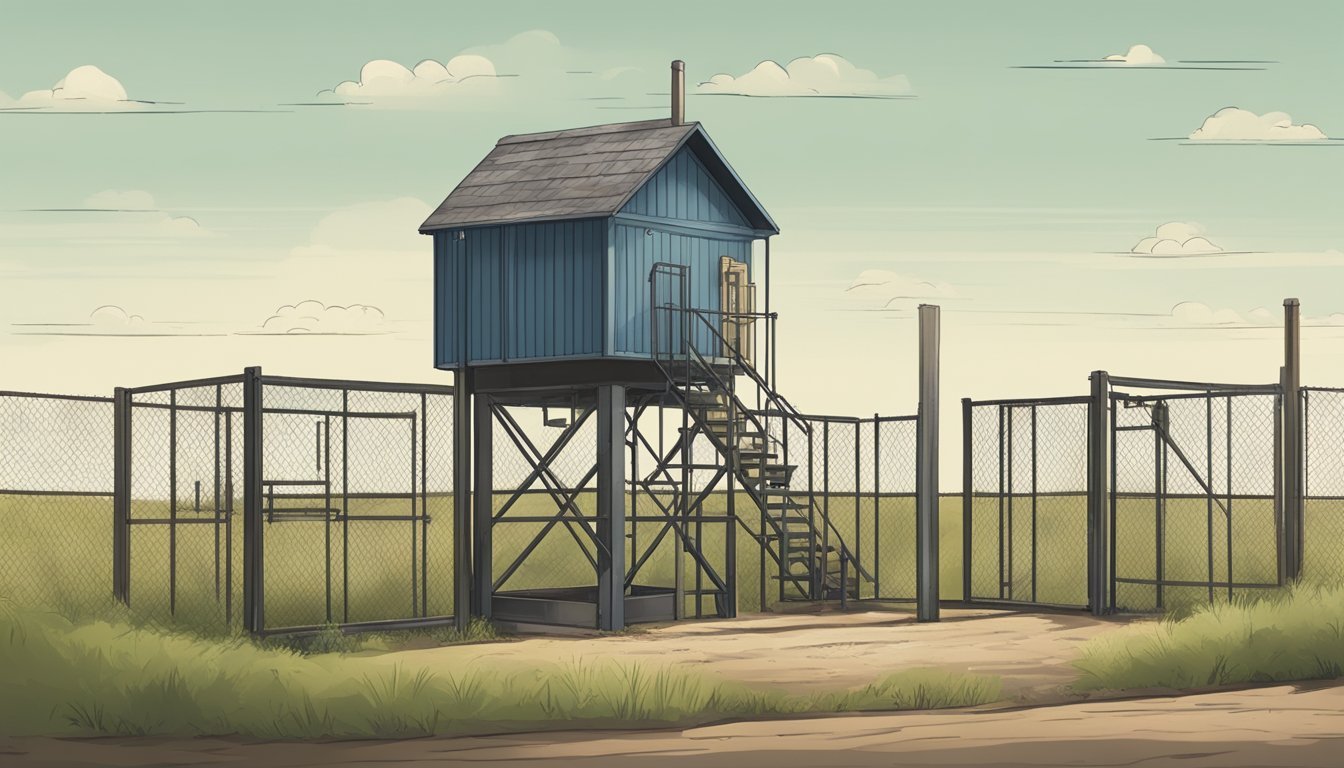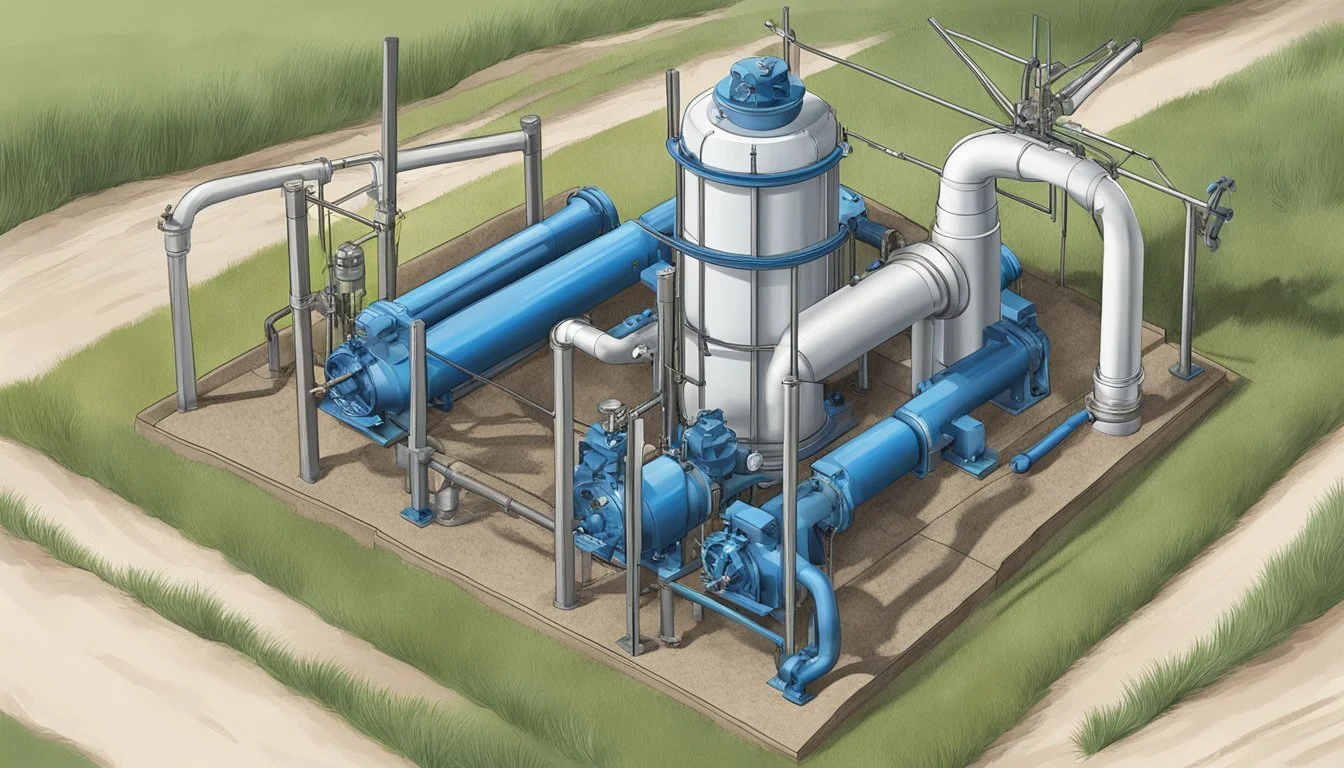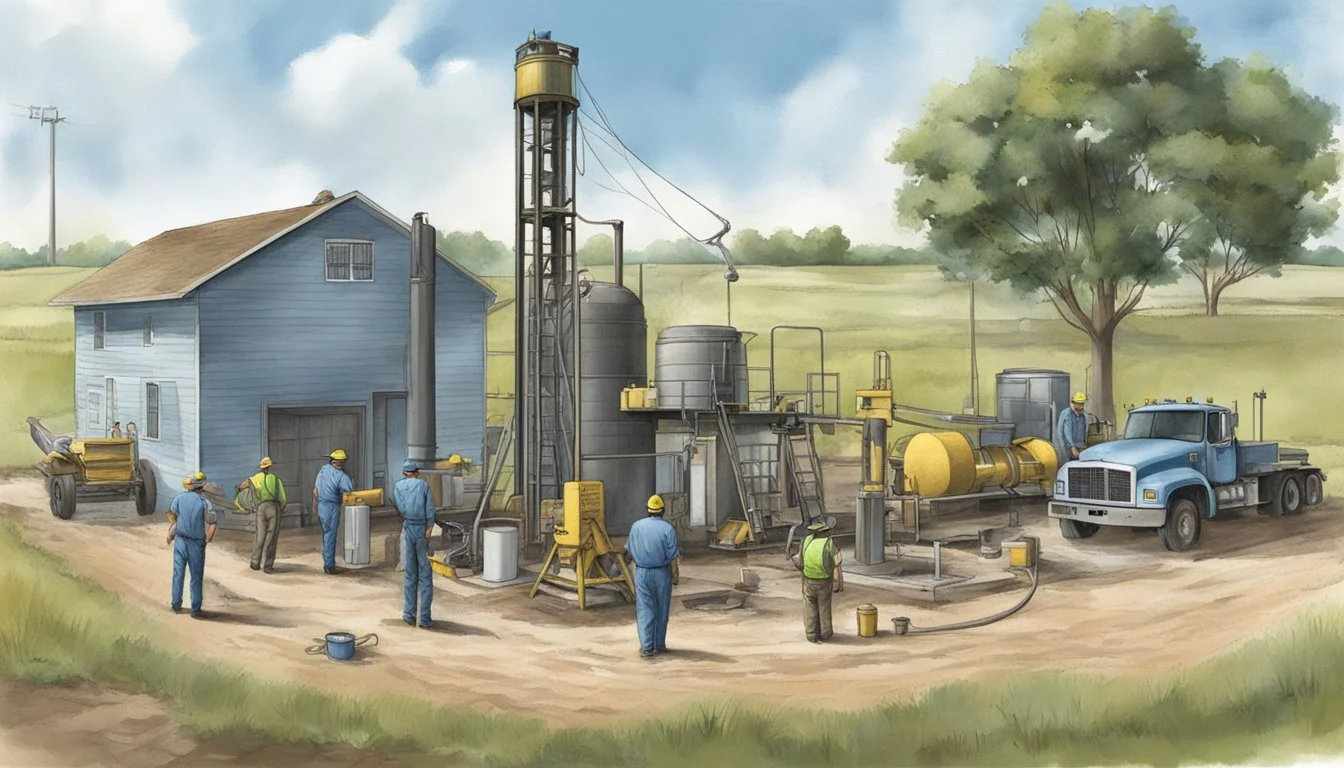Kansas Water Well Regulations
Understanding Legal Requirements for Groundwater Use
Water well construction and maintenance in Kansas are subject to a set of specific regulations designed to ensure the safety and reliability of water resources. These regulations are critical for preserving groundwater quality and preventing contamination. The Kansas Department of Health and Environment provides a comprehensive framework that outlines not only construction procedures but also the plugging of abandoned wells, water well disinfection practices, and the steps necessary to address pollution sources.
Understanding these regulations is essential for well contractors, property owners, and local governments. Information on the requirements for water well contractor's licenses, construction standards for different types of wells, and proper well abandonment techniques can be found in detailed documents provided by state entities. The state’s reliance on both state-level oversight and local government policies reflects the importance of addressing the diverse needs across Kansas's counties.
Local regulations can also play a significant role in water well management within Kansas, as authorities are allowed to develop policies tailored to their specific region. This local governance model complements state regulations, ensuring that private well owners have access to guidelines that address the unique environmental and geological characteristics of their communities. Regulations ensure that all parties involved are knowledgeable about their responsibilities in safeguarding Kansas's water wells and, by extension, its public health and environmental well-being.
Water Well Regulations in Kansas
In Kansas, the management and regulation of water wells are critical to ensuring a safe and reliable groundwater supply. The Kansas Department of Health and Environment (KDHE) plays a key role in maintaining the integrity of this precious resource through a comprehensive set of regulations.
Legal Framework
The Groundwater Exploration and Protection Act constitutes the core of Kansas's water well regulations. This includes the licensing of water well contractors and enforcement of standards that promote safe and legal water well practices.
Groundwater Protection
Groundwater protection is paramount, and Kansas's regulations encapsulate practices intended to preserve the environment and public health. This involves regular monitoring and applying best practices for contaminant prevention to secure the state's groundwater resources.
Water Well Construction
Strict guidelines for water well construction are outlined by the state to ensure that new wells do not compromise the effectiveness of groundwater exploitation. These measures are designed to prevent the introduction of contaminants during well construction and later operations.
Water Well Maintenance
Proper maintenance is essential for the continued health and safety of water wells. Kansas sets forth detailed protocols for the upkeep and repair of wells, aiming for best practices that safeguard the environment and well owners' health.
Water Well Abandonment
When a water well is no longer needed, Kansas requires a secure and formal abandonment process. This includes measures to prevent contamination of aquifers and to effectively manage the retired well site, ensuring that it does not pose a health risk.
Drilling and Construction Standards
In Kansas, the drilling and construction of water wells are subject to stringent regulations to protect groundwater and ensure the safety and welfare of Kansans. Adherence to these regulations is crucial for the responsible management of the state's water resources.
Permitting Process
Before drilling begins, contractors must secure appropriate permits from the Kansas Department of Health and Environment (KDHE). This involves submitting detailed applications that cover the well's purpose, location, and construction plan. All proposed water well activities must meet the state's Procedures & Regulations, ensuring that they align with local and state water laws.
Technical Requirements
The technical specifications for well construction are comprehensive. They ensure that the structural integrity of the well will protect groundwater from contamination. The regulations encompass everything from casing materials to the required distance from potential sources of pollution. For example, the Water Well Program under the KDHE sets forth the standards for well construction, which include minimum casing diameters, grouting requirements, and plugging procedures.
Contractor Certification
Only licensed contractors are permitted to drill and construct water wells in Kansas. These professionals must demonstrate a thorough knowledge of groundwater, well construction techniques, and the statutory requirements, including sanitary standards. The certification process involves passing an examination that covers these key areas, ensuring that all contractors are well-qualified to protect the public's health and the state's groundwater resources.
Water Quality and Contamination Control
Maintaining the quality of water from in Kansas is essential for protecting public health and the environment. This section focuses on two critical aspects: monitoring and testing water quality to detect contamination and implementing measures for its mitigation.
Monitoring and Testing
Regular monitoring and testing of are vital in ensuring safe drinking water for Kansas residents. The Kansas Department of Health and Environment provides detailed procedures for water well testing, helping detect contaminants that could affect human health. For groundwater sources, these tests look for a range of chemical and biological contaminants, including nitrates, heavy metals, and microbes. By identifying contaminants early, one can avoid health risks associated with polluted groundwater.
Contaminant Mitigation
Once contamination is detected, steps must be taken for contaminant mitigation to prevent adverse health effects and environmental damage. This includes the design and implementation of treatment systems to remove contaminants and prevent their spread. It is also important to disseminate guidance documents for well owners which provide recommendations on well construction, maintenance, water quality testing, and disinfection, particularly after flooding events. These resources are crucial for individual well owners to manage and rectify contamination issues.
Well Operation and Pumping Systems
Operating water wells and their associated pumping systems in Kansas requires adherence to specific regulations to maintain the integrity of the groundwater resources and efficiency of the systems in place.
Pump Installation Guidelines
The installation of pumps within water wells must ensure that there is minimal risk of groundwater contamination and adherence to safety standards. The Kansas Administrative Regulations stipulate that each water well pump should be constructed so as to protect groundwater aquifers from pollution. Details such as the type of pump, its capacity, and relationship to the well's design must be examined to suit the needs of the water well suite.
Key Points:
Pumps must match well specifications
Installation to prevent groundwater contamination
Compliance with Kansas regulations essential
Operational Efficiency
Ensuring operational efficiency for water well pumps involves regular maintenance and monitoring. Efficient pump operation is essential not only for energy conservation but also for the longevity of the water well system and the quality of water produced. The Kansas Department of Health and Environment provides guidelines aimed at protecting public health through effective management of the state's groundwater resources.
Recommendations:
Perform regular maintenance checks
Monitor energy consumption
Follow state guidelines to optimize water quality
In operating water well pump systems in Kansas, both the initial installation and ongoing usage must strictly follow state regulations to safeguard water quality and system efficiency. This involves proper pump selection, installation according to code, and a commitment to operational excellence.
Decommissioning and Well Abandonment
Decommissioning and well abandonment in Kansas are crucial activities for protecting groundwater quality. They involve a specific set of procedures mandated by state regulations and overseen by the Kansas Department of Health and Environment (KDHE).
Abandonment Procedures
Abandoning a well is a regulated process that must be completed according to precise standards. The goal is to prevent contamination of groundwater aquifers, which can occur if a well is improperly abandoned. The Kansas Legislature stipulates that responsible parties must file complaints and investigations pertaining to abandoned wells to ensure adherence to legal requirements. KDHE guidelines define specific steps:
Cease usage and remove any pumps or related equipment.
Disinfecting the well.
Filling the well with an approved grouting material to avoid future contamination.
Sealing the well from the bottom upward to three feet below ground level with grout.
The intention behind these procedures is to create a barrier between potential pollutants and the groundwater.
Post-Abandonment Site Restoration
After a well is plugged and abandoned, restoring the site to prevent any surface contamination is necessary. Casetext outlines that the plugged hole should be covered over with compacted surface silts or clays. This measure ensures there is a durable layer protecting the seal and eliminating the risk of pollutants seeping into the plugged well. KDHE monitors the site's condition following completion to ensure the integrity of the sealing and the absence of pollutants in the vicinity.
Environmental Impact and Sustainability
In Kansas, strict water well regulations are designed to mitigate the environmental impact and maintain sustainability, particularly concerning ecosystem protection and sustainable water use. The established rules safeguard both groundwater and surface water, essential for the environment's health and human use.
Ecosystem Protection
Kansas regulations enforce minimum separation distances between water wells and potential contamination sources to protect the surrounding ecosystems. These distances are based on the soil's filtering capacity for bacteria and other microbes, ensuring that the water remains safe for both human consumption and wildlife. For example, the Kansas Department of Health and Environment requires a minimum 50-foot separation, while some counties mandate even more stringent measures.
Sustainable Water Use
The focus on sustainable water use is evident in guidance provided to well owners. It includes the promotion of proper well construction, maintenance, and protection practices. Owners are also advised on the judicious usage of water to prevent the depletion of the water table. Additionally, the Kansas Water Office outlines policies aimed at conserving groundwater resources, emphasizing the importance of responsible water well practices to ensure long-term aquifer viability.
Public Health and Safety
The safety of Kansas' water supply is imperative for the protection of public health. Regulations set forth by entities such as the Kansas Department of Health and Environment (KDHE) are designed to mitigate risks from water-related hazards.
Health Impacts of Contaminated Wells
Contaminated wells pose a significant threat to public health. Pathogens, chemicals, and other contaminants can cause a range of illnesses, from gastrointestinal diseases to neurological disorders. The KDHE is constantly monitoring and updating water safety practices to protect individuals from these hazardous exposures. Ensuring water well safety is particularly crucial during public health emergencies, as seen with the KDHE COVID-19 website, where water sanitation remains essential.
Public Resources for Water Safety
The State of Kansas offers several resources for ensuring the safety and quality of private water supplies. Among these, the Water Well Program Forms & Regulations provide necessary guidelines and procedures for well water safety. For broader health concerns, citizens can refer to the Kansas Vaccine Website to understand how vaccines contribute to overall public health, indicating the state's dedication to keeping its residents safe from preventable diseases. This comprehensive approach to public health demonstrates Kansas's commitment to maintaining the well-being of its communities through accessible information and resources.
Online Resources and Further Information
When seeking information on water well regulations in Kansas, several authoritative online resources stand out. The Kansas Department of Health and Environment (KDHE) manages the Water Well Program, which oversees the licensing and regulation of water well contractors to safeguard groundwater and public health.
Prospective and current well owners can find a host of useful documents on KDHE's dedicated Forms, Procedures, & Regulations webpage. This section provides:
Regulations: Comprehensive legal framework governing water wells.
Forms: Necessary paperwork for compliance and reporting.
Procedures: Step-by-step guidance on regulatory processes.
Those looking for guidance specific to well ownership can navigate to the page on Guidance Documents for Well Owners. It features resources and technical assistance contacts for well construction, maintenance, and protection.
For an overview of the administrative rules, the Kansas Secretary of State - KAR Regulations page provides the statutes relevant to water wells, including construction and pollution prevention protocols.
To explore water well records, users can turn to the University of Kansas' Water Well Completion Records Database. This database offers:
Status map: Visual representation of database records.
Contractor list: Database of licensed water well contractors.
Statistics: Information on wells drilled and water use.
These .Gov and university-affiliated websites offer a wealth of information for those involved or interested in the intricacies of water well management in Kansas.
Frequently Asked Questions
The following inquiries are common among those navigating the specifics of Kansas water well regulations. This section addresses requirements for permits, cost determinations for drilling, information databases, property line proximity guidelines, plugging procedures, and pollution regulations.
What are the requirements for obtaining a water well permit in Kansas?
In Kansas, individuals seeking to construct or modify a water well require a permit issued by the Kansas Department of Health and Environment (KDHE). Applicants must be licensed water well contractors, and the permit application must include well location, proposed use of water, and well specifications. For further details, one can refer to the Water Well Program provided by KDHE.
How is the cost to drill a well determined in Kansas?
The cost of well drilling in Kansas varies based on factors such as the depth of the well, the diameter of the borehole, the type of drilling technique used, and the geological conditions of the site. Prices are typically determined by well contractors providing estimates based on these variables.
What information is available in the Kansas water well information database?
The Kansas Geological Survey maintains a water well information database that includes records of well locations, construction details, yield tests, and water levels. It is a comprehensive source for understanding groundwater resources in the state.
What are the guidelines for well proximity to property lines in Kansas?
Kansas regulations specify that private water wells must be located a safe distance from property lines and potential sources of contamination, such as septic systems and livestock yards. The exact proximity requirements can be found in the detailed Guidance Documents for Well Owners.
What procedures must be followed for well plugging according to KDHE regulations?
When a water well is no longer in use, it must be properly plugged to prevent contamination of groundwater. KDHE regulations outline specific materials and methods to be used in the plugging process. The contractors must file a plugging record with the KDHE, documenting the completion of work according to approved standards.
How does Kansas law regulate water pollution in relation to private wells?
Kansas law requires that private well owners ensure their wells do not become a source of contamination to the water supply. This includes constructing wells away from potential pollutants and regularly inspecting and maintaining wells to prevent leaks or infiltration of contaminants. The state provides resources and support for well owners to manage and protect their water quality.









